
Gerhard Schoepp Music Interview 3 Flagship models
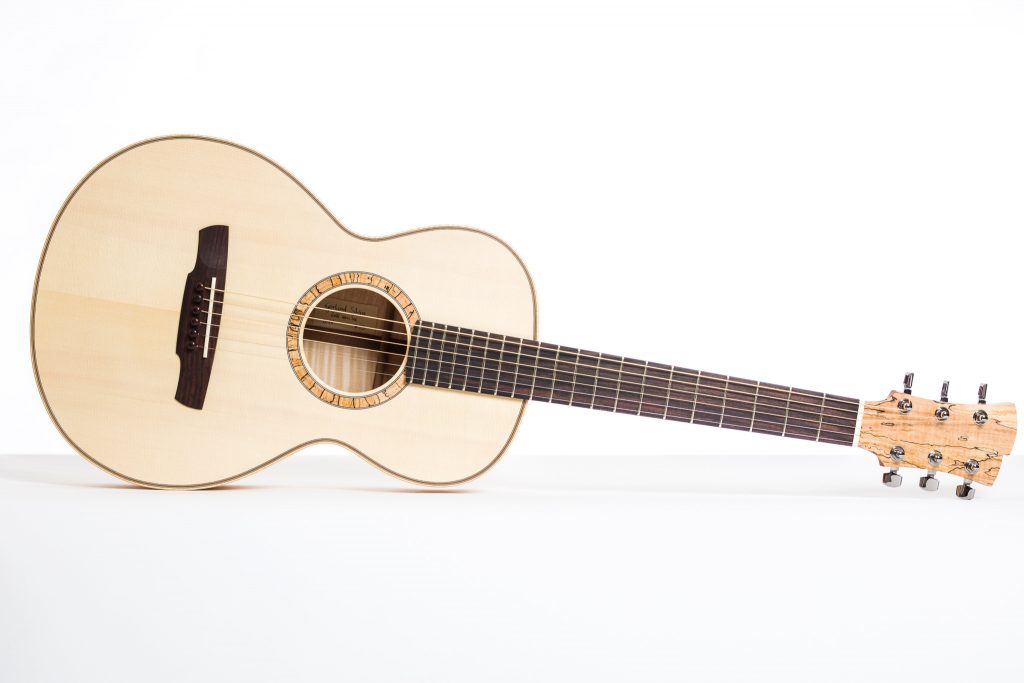
Gerhard Schoepp Music Interview 3 Flagship models
Gerhard Schoepp Music – Can you tell us about your current flagship models? Do you have a range that you do regularly? Do you also make unique custom models ? How did you proceed to create them ? What were your choices and your creation process?
My “Autumn” model is the guitar I build most of the time.
It is basically an OM-sized instrument with a modern shape, usually done with a venetian cutaway and armbevel. It is available as a 13th or 14th fret to body, and I also do a Crossover Nylon string version.
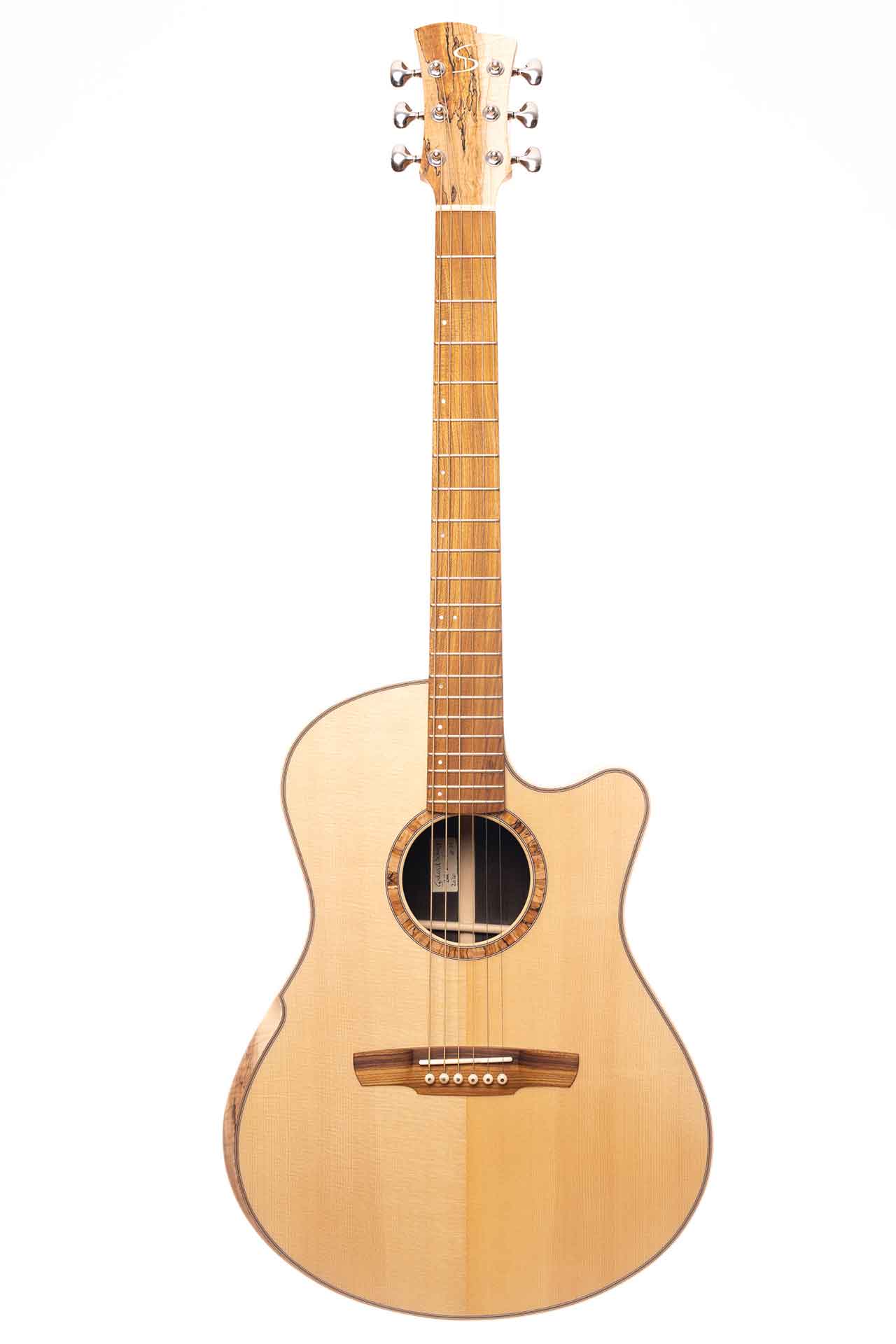
A lot of my work is focused on smaller body steelstring guitars. Thus, I build two different styles of parlor guitars – one with a full scale, 13th or 14th fret to the body, and one with a shorter scale of 600mm, 12th fret to body. Both sound great, and the shorter scale is especially pleasing to players with smaller hands. However, if you prefer open tunings, the longer scale is probably the better choice. Both guitars are comparable to a 0-sized guitar.
Then, of course, I have a 17” archtop guitar in my standard repertoire, which is very much constructed like an instrument from the violin family.
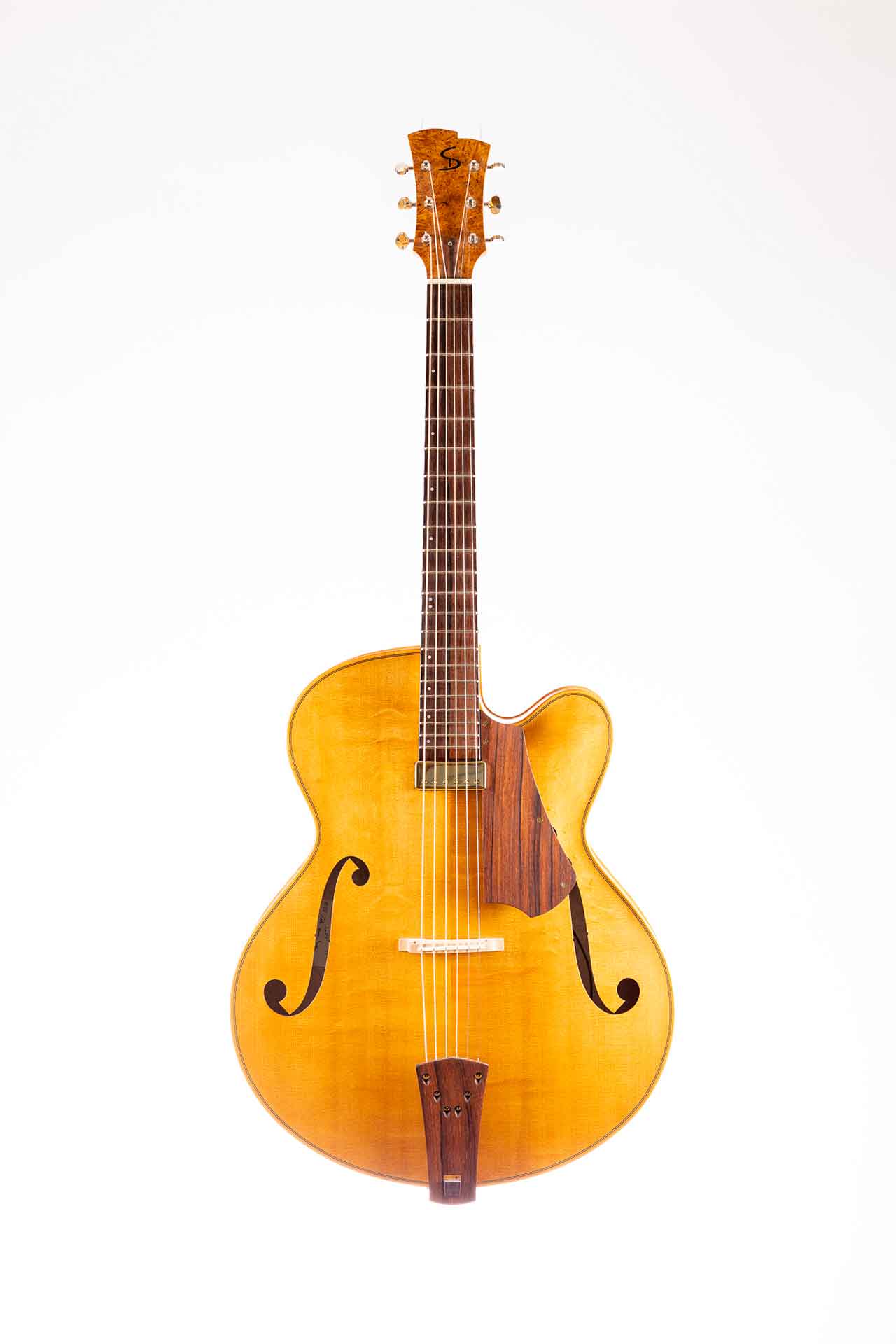
What I like about it most is the aspect of reparability. Because of the use of hideglue and overhanging edges, it can easily be opened and repaired from the inside. This will make the guitar last for a very long lifespan – in fact, I expect most of my instruments to outlive me.
Usually, when I create a new model, I start by drawing the shape of the guitar body. I do this with a CAD program, because it is easy to make little changes and immediately see the effect. I then add the neck, soundhole and bridge, and let the design rest for a little while.
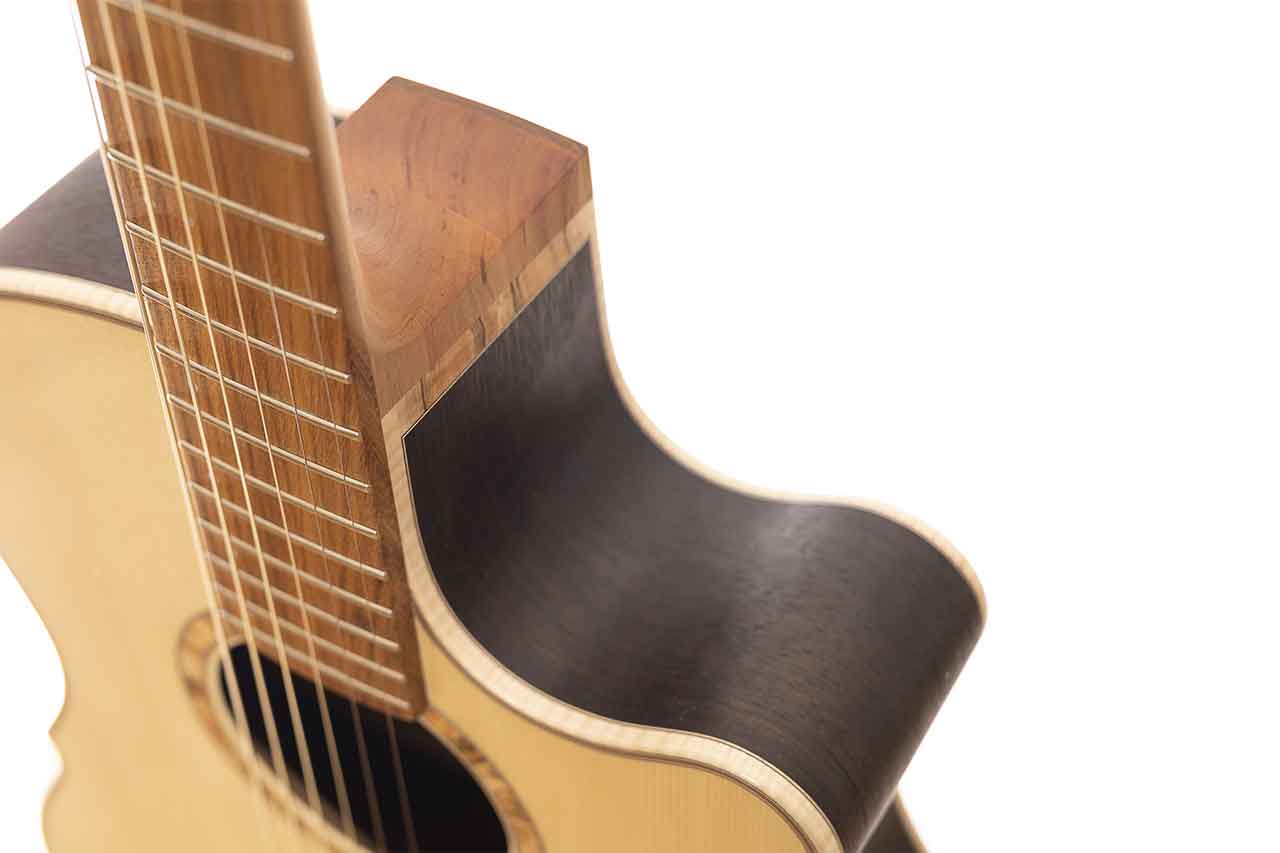
After a few weeks, I come back and check if I still like the result.
Once I am satisfied, I proceed to make a prototype. I also do adjustments after a few built guitars if needed. For example, I sometimes feel tempted to change the cutaway of the “Autumn” to a flatter version with larger radiuses.
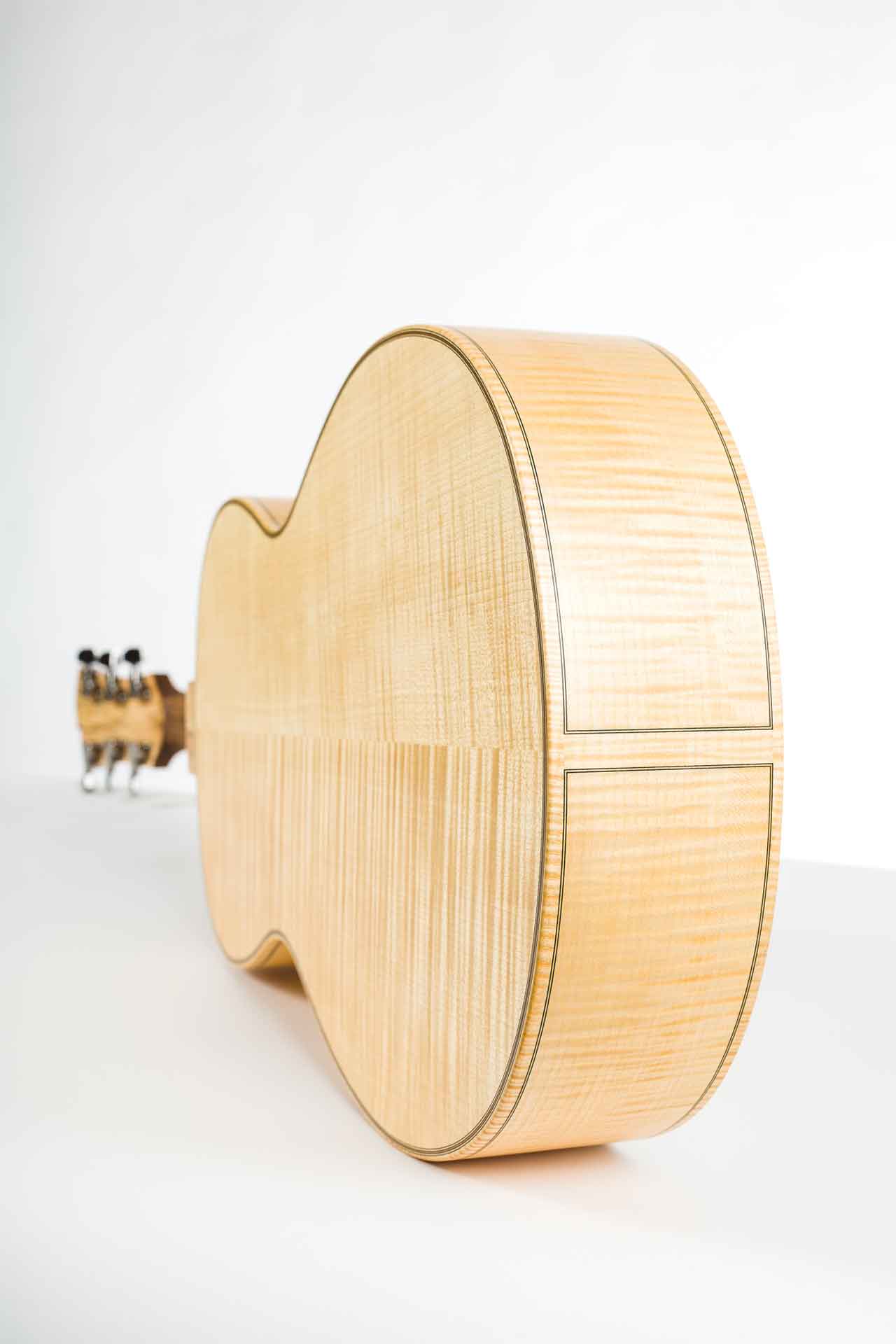
I also try out new wood combinations on almost every instrument, but I tend to get the best results from lightweight, stiff timbers such as maple, spruce, walnut, elm and yew.
I have built great instruments from ziricote and rosewood too, but I rather like the non-tropical aspect of European wood. Currently I favour a very thin, glossy polyurethane finish on the top combined with an open pored, semi-gloss oil finish on the back, sides and neck. The PU protects the top from scratches, and the oil gives a nice and smooth feel to your hand.
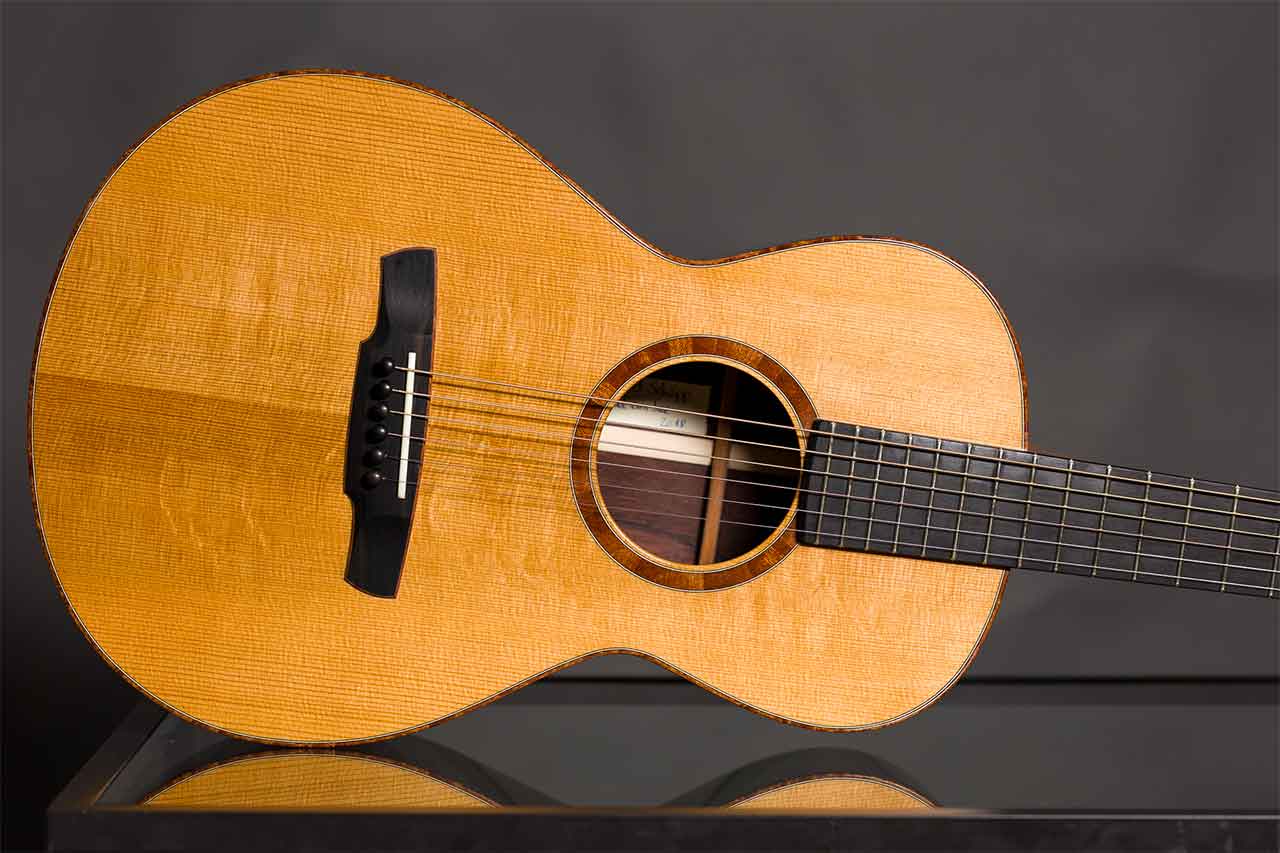
Right now I am in the design process of a 00-sized guitar, which is going to be released during the autumn months of this year. Of course, a Dreadnought guitar should also be in my range of models, but I have not yet seen the need for it, because I can get a deep, bassy sound out of an “Autumn” as well – it is just a matter of construction.
However, I already designed my Dreadnought shape just for the fun of it, and I will build a prototype once I find a little bit of extra time. As for custom models, I actually feel like every single one of my guitars is a custom model – the customer is part of the composition in regards to design, wood choice and specifications of the instrument. I welcome every customer to tell me their favourite neck dimensions, so I can tailor it to their specific needs.
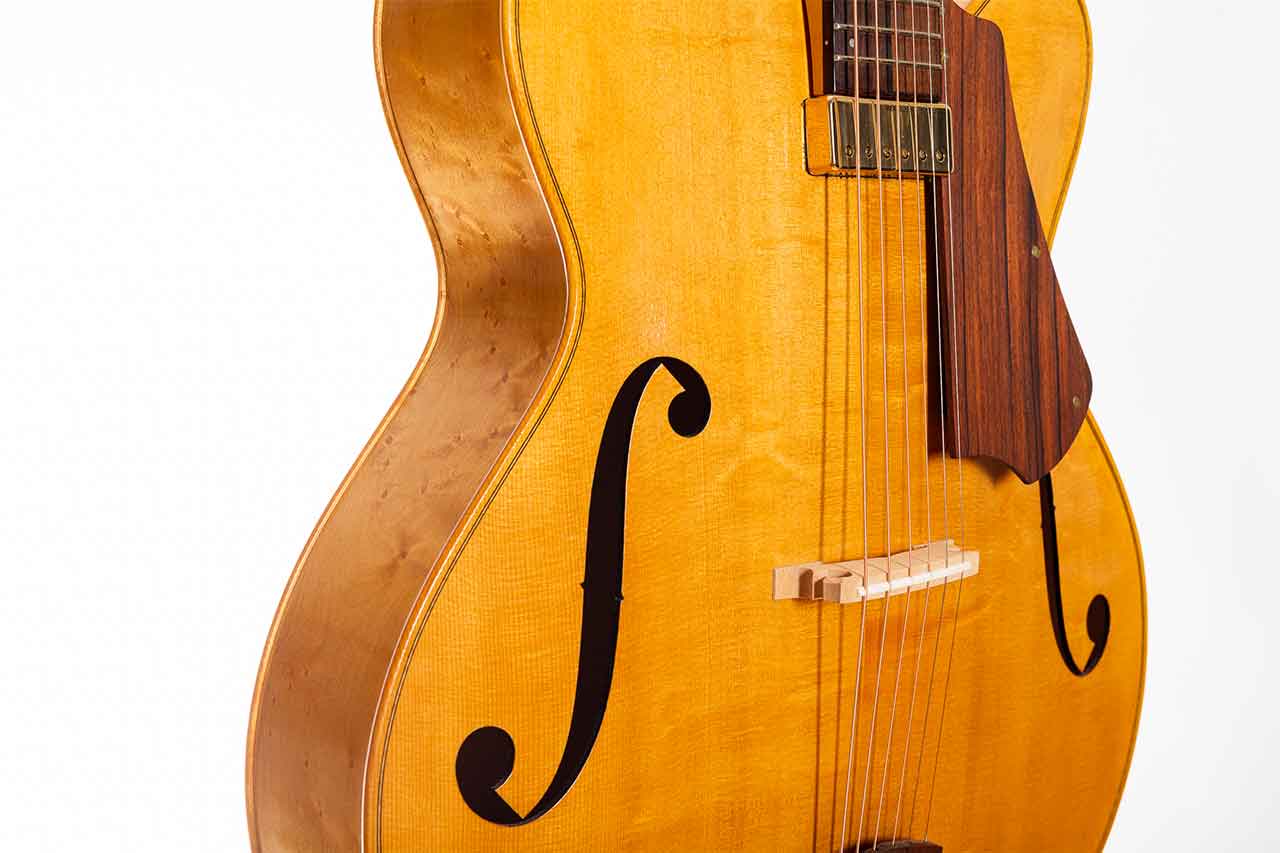
Gerhard Schoepp Music
Interview 3
Flagship models
You can contact Gerhard Schoepp through the contact form on his personal page of Luthiers.com here:
- For Plucked String Instruments: https://luthiers.com/listing/gerhard-schoepp-music/
- For Bowed String Instruments: https://luthiers.com/listing/gerhard-schoepp-violins/
We also invite you to follow him on his various social networks:
Gerhard Schoepp Music Interview 3 Flagship models
Gerhard Schoepp Music Background
Discover the background of this luthier:
https://luthiers.com/gerhard-schoepp-music-interview-1-background/

In the coming weeks, as for others luthiers for plucked string instruments, luthiers for bowed string instruments, amps & effects makers, wood & supplies dealers, lutherie events, jobs, schools & teachers subscribers on our site, you will be able to follow our series of mini-interviews dedicated to the fascinating world of luthiers.
See you soon…
#luthiers
Subscribe to the newsletter!
Subscribe to our newsletter to follow all our news and those of our luthiers.
If you are passionate about the world of luthiers, join us!